The Well-Tempered Ear
A changing Earth demands changing music to mark Earth Day
1 Comment
PLEASE HELP THE EAR. IF YOU LIKE A CERTAIN BLOG POST, SPREAD THE WORD. FORWARD A LINK TO IT OR, SHARE IT or TAG IT (not just “Like” it) ON FACEBOOK. Performers can use the extra exposure to draw potential audience members to an event. And you might even attract new readers and subscribers to the blog.
By Jacob Stockinger
Today — Saturday, April 22 — is Earth Day 2023.
It is the 53rd annual celebration of the environment that was started on this date in 1970 by the former Wisconsin governor and U.S. Senator Gaylord Nelson (below bottom).
As the website “Self-Help Africa” says: “Earth Day is an annual event on April 22 to highlight environmental issues across the planet and demonstrate support for environmental protection.
“First held in the United States on April 22, 1970, it has since become THE BIGGEST SECULAR CELEBRATION OBSERVATION DAY IN THE WORLD, and an opportunity to highlight the issues and environmental challenges affecting our world.”
Here is the official Earth Day website: https://www.earthday.org/
Music has always been part of how the world celebrates the event.
But lately the trend in music seems to parallel the trends in the global warming crisis and species extinctions.
So, for example, in British composer Debbie Wiseman’s “Carnival of the Endangered Animals” in 2022 is meant to parallel but update the famous “Carnival of the Animals” by Camille Saint-Saëns.
Other titles of works by contemporary composers that reflect current realities about the natural world are: “The Lost Birds” by American composer Christopher Tin (below top); “Mass for the Endangered” by American composer Sarah Kirkland Snider (below middle); “The Rising Sea” Symphony by British composer Kieran Brunt; and “Glaciers in Extinction” by Italian flutist and composer Roberto Fabbriciani (below bottom).
You can hear these and other contemporary works plus a more familiar and traditional musical celebration of the Earth and nature by Beethoven. Just go this site for Colorado Public Radio:
Do you have a favorite among the new pieces?
Is there other music you think is appropriate to celebrate Earth Day and the natural world as they exist today?
What composers and pieces do you suggest listening to?
The Ear wants to hear.
Tags: #BlogPost, #BlogPosting, #FacebookPost, #FacebookPosting, #HealthCrisis, #YouTubevideo, Africa, America, American, animals, Arts, Asia, asian, audience, birds, blog, Britain, Brunt, Camille Saint-Saëns, Carnival, Carnival of the Animals, celebrate, celebration, Cello, Chamber music, change, changing, China, Chinese, choral music, Christopher Tin, Classical music, climate change, Colorado, Colorado Public Radio, composer, Concert, contemporary composers, contemporary music, CPR, crisis, Debbie Wiseman, Earth, Earth Day, endangered, England, environment, environmental, event, extinction, Facebook, favorite, flute, flutist, France, French, Gaylord Nelson, glacier, global warming, governor, habitat, hear, issue, Italian, Italy, Jacob Stockinger, Kieran Brunt, link, Ludwig van Beethoven, Madison, mass, Music, National Public Radio, natural world, nature, NPR, opera, Orchestra, Piano, piece, planet, protection, public radio, Radio, realities, reality, rising sea level, Roberto Fabbriciani, Sarah Kirkland Snider, sea, secular, Self-Help Africa, senator, share, species, support, symphony, tag, The Ear, traditional, U.K., U.S., UK, United States, Viola, Violin, vocal music, Wisconsin, YouTube
Classical music: Take a FREE choral tour of the past year’s holidays this coming Saturday night at the UW-Madison. Plus, pianist Mark Valenti performs a FREE recital of Milhaud, Schubert and Prokofiev this Friday at noon.
1 Comment
ALERT: This week’s FREE Friday Noon Musicale, to be held from 12:15 to 1 p.m. in the Landmark Auditorium of the Frank Lloyd Wright-designed First Unitarian Society of Madison, 900 University Bay Drive, features pianist Mark Valenti. He will play Three Pieces from “Le Printemps” (Spring) by Darius Milhaud; the Sonata in A major by Franz Schubert; and the Sonata No. 7 in B-flat major by Sergei Prokofiev.
By Jacob Stockinger
This week brings two FREE concerts by several choral groups at the University of Wisconsin-Madison School of Music.
On Friday night at 8 p.m. in Mills Hall, the University Chorus, Women’s Choir and Master Singers will perform a FREE concert. Sorry, no word yet about the program.
Then on Saturday night at 8 p.m. in Mills Hall, the UW Chorale will perform a FREE concert called “It’s a Jolly Holiday!” Director Bruce Gladstone (below, in a photo by Katrin Talbot) will conduct.
NOTE: This concert is NOT to be confused with the usually packed Winter Choral Concert — with its theme of holidays, multiple choirs and several conductors — that will take place on Sunday, Dec. 6, at 2 and 4 p.m. at Luther Memorial Church.
Here are some program notes:
“This fall, the UW Chorale gets into the holiday spirit.
“But which one?
“An entire year of them!
“The ensemble starts with New Year’s Day and moves through the calendar year singing choral works to commemorate each festive day.
“They’ll celebrate President’s Day, Valentine’s Day, St. Patrick’s Day, Easter, Earth Day (below) and so on, with a variety of great music that will leave you wondering why you only think about hearing a choir sing at Christmas.
“Works include “My Funny Valentine,” “Free at Last,” Wolfgang Amadeus Mozart’s “Regina Coeli,” Howard Hanson’s “Song of Democracy,” Aaron Copland’s “The Promise of Living” and many more.” (You can hear Howard Hanson’s “Song of Democracy,” with words by poet Walt Whitman and with the famous Interlochen theme from his “Romantic” Symphony No. 2, in a YouTube video at the bottom.)
“There will be something for everyone as they explore the days we call “holy.””
Tags: Aaron Copland, Arts, Choir, choral music, Christmas, Classical music, Darius Milhaud, democracy, Earth Day, Easter, First Unitarian Society of Madison, Frank Lloyd Wright, Holiday, Holidays, holy, Howard Hanson, Interlochen, Jacob Stockinger, Luther, Madison, Mozart, Music, Music director, New Year's, New Year's Day, Orchestra, Piano, pieces, poem, poet, President's Day, Prokofiev, Romantic, sacred, Saint Patrick's Day, Schubert, secular, Sonata, song, Spring, Undergraduate education, University of Wisconsin-Madison School of Music, University of Wisconsin–Madison, Valentine's Day, vocal music, Walt Whitman, Wisconsin, Wolfgang Amadeus Mozart, YouTube
Classical music: The Wisconsin State Capitol will mark Earth Day this Saturday and next Wednesday with music by Wisconsin composer John Harmon plus words by Wisconsin figures responsible for the environmental tribute. Plus, the Edgewood College Chamber Orchestra performs Mozart, Debussy and Stravinsky this Sunday afternoon. And don’t forget about WYSO’s “Art of Note” fundraiser Saturday night and two performances on Friday night and Sunday afternoon of Rameau’s opera-ballet “Pygmalion” by the Madison Bach Musicians.
Leave a Comment
REMINDERS: This Saturday night from 6 to 10 p.m., the Wisconsin Youth Symphony Orchestras (WYSO) will hold its annual “Art of Note” fundraiser at CUNA Mutual. Auctions, fine food and live music will be featured.
For more information visit: http://wyso.music.wisc.edu/artofnote/ and https://welltempered.wordpress.com/2015/03/24/classical-music-education-wysos-art-of-note-benefit-on-april-18-seeks-to-raise-50000-to-benefit-music-education-in-greater-madison-area/
Also: The Madison Bach Musicians presents two performances of “Pygmalion” by Jean-Philippe Rameau It’s a 1784 Baroque opera-ballet done in the Atrium Auditorium (below, in a photo by Zane Williams) of the First Unitarian Society of Madison.
The first performance is tonight with a 6:45 p.m. lecture and 7:30 p.m. concert. The second is on Sunday afternoon with a lecture at 2:45 p.m. and a 3:30 p.m. concert.
Internationally recognized UW-Madison early-music specialist Marc Vallon will direct a full baroque orchestra, dancers and an outstanding vocal cast as they tell the tale of a sculptor who falls in love with his beautiful creation—and then, through the power of Venus, the statue comes to life. Tickets are $25 in advance, $30 at the door.
For more information, go to: http://madisonbachmusicians.org/concerts/current-concert-season/
ALERT: At 2:30 p.m. this Sunday afternoon, in the St. Joseph Chapel, 1000 Edgewood College Drive, the Edgewood Chamber Orchestra will give its Spring Concert.
Admission for the public is $5 and will benefit music scholarships. Admission is FREE with an Edgewood College ID.
The Edgewood Chamber Orchestra will play under the director of Blake Walter (below, in a photo by John Maniaci). Included on the program are the Symphony No. 32 in G by Wolfgang Amadeus Mozart; the “Prelude to the Afternoon of a Faun” by Claude Debussy and the Pulcinella Suite by Igor Stravinsky.
Also being performed is the first movement of Mozart’s Piano Concerto No. 19, K. 459, featuring pianist Stephanie Crescio (below), the winner of the Edgewood College Music Department Student Concerto Competition.
By Jacob Stockinger
Madison-based music publicist and activist Jon Becker writes:
Wisconsin’s Earth Day Heritage will be celebrated in music and words this Saturday, April 18, and on next Wednesday, April 22. (You can hear a short history of Earth Day in a YouTube video at the bottom.)
Music broadcasts will feature the voices of the descendants of John Muir, Aldo Leopold, and Earth Day Founder U.S. Senator and former state Governor Gaylord Nelson, set to the symphonic music of Wisconsin composer John Harmon.
There will be several opportunities to hear a “sneak preview” of Earth Day Portrait, music celebrating Earth Day values, before its international release on CD later this year.
For the third year, the music will be “broadcast” in the Rotunda of Wisconsin’s State Capitol building (below). Listeners should gather at the bust of “Fighting Bob” La Follette (the East Gallery entry is closest).
On Saturday, April 18, the music will be broadcast 10 times on the half hour, starting at 9 a.m. and ending at 2 p.m.
On Wednesday, April 22 — which is Earth Day — there will be broadcasts at 4:30 p.m. and 5 p.m.
Earth Day Portrait is a symphonic setting of eco-moral texts of John Muir, Aldo Leopold and Earth Day founder, former Wisconsin Gov. and U.S. Sen. Gaylord Nelson (below). For the CD recording, the words of these environmental legends were read by their descendants: William (Muir) Hanna, great-grandson; Nina Leopold Bradley, daughter; Gaylord Nelson Jr., son; and Kiva Nelson, grand-daughter.
Patty Loew, an enrolled member of the Bad River Band of Lake Superior Ojibwe, narrated connecting texts that paint intimate, personal portraits of Muir, Leopold, and Nelson, while recalling their unique mutual connection to Madison, Wisconsin.
All this is woven together by the story of the passenger pigeon’s extinction. Members of the Madison Youth Choirs (below, in a photo by Karen Holland) recorded a call-and-response part that -– at concert performances -– is spoken by audience members.
Earth Day Portrait was composed in 2001 by John Harmon (below), who graduated from Lawrence University in Appleton, Wis., and who makes his home on the Wolf River, near Winneconne.
Harmon’s music was recorded in Glasgow by the Royal Scottish National Orchestra, led by conductor Marin Alsop, the first conductor to win a MacArthur “genius” Fellowship. London’s EMI-Abbey Road Studios produced the master recording. Voiceovers were recorded at Audio for the Arts in Madison and at Umbrella Studios in Los Angeles.
For the forthcoming Earth Day CD, Harmon’s composition will be paired with Hymn to the Earth, by American composer Edward Joseph Collins (1886-1951, below). Composed in Door County, and inspired by Wisconsin’s seasons and landscapes, Collins’s ode to nature also may well be the first Western classical composition to refer to our home planet as “Mother Earth.”
Tags: Abbey Road, Activism, Aldo Leopold, Arts, ballet, Blake Walter, Bob La Follette, choral music, Classical music, Compact Disc, composer, concerto, Debussy, Earth, Earth Day, Edgewood College, Edward Joseph Collins, environment, Gaylord Nelson, genius grant, Glasgow, global warming, Jacob Stockinger, Jazz, Jean-Philippe Rameau, John Harmon, John Muir, Lawrence University, Lawrence University Conservatory of Music, London, Los Angeles, MacArthur Foundation, Madison, Madison Youth Choirs, Marin Alsop, Mozart, Music, ode, opera, Orchestra, Piano, Piano concerto, planet, Prelude to the Afternoon of a Faun, Pulcinella Suite, Pygmalion, Rotunda, Royal Scottish National Orchestra, state Capitol, Stravinsky, symphony, University of Wisconsin-Madison School of Music, University of Wisconsin–Madison, Wisconsin, YouTube
Classical music Q&A: What music best celebrates Earth Day? Plus, composer Jake Heggie talks about how writing “Dead Man Walking” changed his professional and personal life, and left a mark on his heart with the issue of capital punishment. The Madison Opera will perform the opera this weekend on Friday night and Saturday afternoon.
2 Comments
Reader Survey: Today is Earth Day, founded by former Wisconsin governor and senator Gaylord Nelson. What piece of classical music best expresses the event for you? Tell us what you think by leaving a COMMENT.
By Jacob Stockinger
Today’s guest post is written by Michael Muckian (below), a long-time and award-winning Madison-based Wisconsin music journalist who covers everything from grand opera to the Grateful Dead. He writes about theater, art, food, wine and travel, as well as financial services and other business topics. He is currently a freelance writer and independent corporate communications consultant.
By Michael Muckian
The Madison Opera will present Jake Heggie’s “Dead Man Walking” at 8 p.m. this Friday, April 25, and at 2:30 p.m. this Sunday, April 27, in Overture Hall at the Overture Center for the Arts in Madison.
The opera will be sung in English with projected text in surtitles. Tickets are $18 to $121. Call (608) 258-4141 or visit www.madisonopera.org for more information.
The opera does have a Parental Advisory because it contains nudity, graphic violence, and explicit language, and is not recommended for anyone under age 18.
PLEASE NOTE: The real Sister Helen Prejean and composer Jake Heggie will be in Madison and offer a FREE public discussion this Thursday night at 7 p.m. at the First Congregational United Church of Christ, 1609 University Avenue. No reservations are needed. They will also attend opening night.
Composer Jake Heggie was a composer of art songs written for vocal luminaries such as Renee Fleming, Frederica von Stade, Audra McDonald, Patti Lupone and others when he was approached by author Terrence McNally to compose the music for “Dead Man Walking,” based on the book by Sister Helen Prejean about her work with death-row inmates. In the interview he gave me, he said the experience changed his life, both as a composer and as a human being.
As I understand it, “Dead Man Walking” was your first opera. What attracted you to the work?
It felt timely and timeless; very American, but universal; it’s about something that matters deeply; it had instant name recognition; it had the essential elements of a grand opera, plus the conflicts and emotions so large that it not only makes sense for people to sing, but it is the kind of emotion and drama that could fill an opera house. I also felt deeply inspired and moved by the story right away.
How did you approach the music for this opera?
The libretto by Terrence McNally (below) demanded a range of American styles, including jazz, folk, pop, rock and gospel (You can listen to the YouTube video at the bottom for a sample.) The setting is the South, and that has its own musical landscape, too. Those are all styles and sounds familiar to me, and it felt natural to explore and weave them together. I think audiences will feel challenged at times, but also will feel included in this musical journey.
What were the themes you felt necessary to include in the opera? What are the key issues surrounding capital punishment, and how did you express them musically?
All of the themes I explore spring from complex human emotions inspired by love, loss, grief, joy, outrage, a quest for vengeance, a search for forgiveness and redemption. It’s all about what people want and yearn for, what they are afraid of, what they have lost. There are so many heightened emotions in this story, and it was important to honor each character and love them for who they are.
Did any themes in the opera touch you personally? In other words, did you have any personal experiences you drew on when writing the opera?
I was hugely challenged by the conflicts in this piece, and the enormity of the grief on all sides. I drew on my own personal experiences, of course, but part of my job as a theater composer is to empathize with each character and write truthfully for them, not to over-sentimentalize or trivialize their journey. For much of this opera, once I tapped into the musical world of the piece, it was a matter of listening to the characters and letting them sing to me, almost like taking dictation.
This is an opera about social justice or, if you will, social injustice. Did writing “Dead Man Walking” change or enhance your opinion of capital punishment?
Opera literature is replete with stories of social injustice: George Frideric Handel‘s “Semele,” Wolfgang Amadeus Mozart’s “The Marriage of Figaro” and “Don Giovanni,” Giuseppe Verdi’s “La Traviata,” “Rigoletto” and “Otello”, Giacomo Puccini’s “Madama Butterfly,” Benjamin Britten‘s “Peter Grimes” and Stephen Sondheim‘s “Sweeney Todd” for starters.
Most of the comic operas deal with some form of social injustice, too. That’s one of the reasons I recognized that Terrence McNally had an inspired idea in suggesting “Dead Man Walking” as an opera. It fits into the big trajectory of grand operas.
And, yes, the experience of researching and writing the opera challenged and changed me. I regret to say that I was one of the people who had never really meditated on the death penalty. I’d always thought of it in the abstract. But in dealing with it head on I came to understand that this is a deeply political and racial issue. It takes place in a very flawed and inequitable system of human beings making life-and-death decisions.
The death penalty is also the only punishment where we as a society repeat the very behavior we abhor. Think about it: we don’t rape the rapists, we don’t beat up the assailants, but we murder murderers. And we do this to show that murder is wrong.
How did you interact with Terrence McNally? Was it libretto first, the music after or did the two of you work more collaboratively?
The story is always first. Before there are words or music, there’s the story, and everything has to be in service to the story. Sister Helen Prejean (below), on whose work the opera is based, made one request of us from the beginning — that the opera remain a story of redemption.
So we talked at length about how we wanted to tell the story – what parts of it moved and inspired us most. Where we were going to begin and where we were ending. Then he started crafting a libretto and I started writing music. There was much back and forth throughout.
Music changes everything, of course, and gives us insight into characters that words alone do not. When writing the music, I would discover that there were many things that we could describe with music alone – no words were needed. It went back and forth until we were finished.
Where does “Dead Man Walking” fit within the canon of your other works? Does it mark your evolution from an art songs composer to an opera composer?
It was my first opera and I was 39 years old when it was premiered. I had written a great deal of music before Dead Man Walking, but composing the opera affected my style and sense of writing deeply. That’s when I finally figured out that I’m a theater composer, a storyteller. Everything since “Dead Man Walking” has been different from everything before — it’s a real demarcation point. I couldn’t have composed “Moby-Dick” (below) if I hadn’t composed “Dead Man Walking” 10 years earlier, that’s for certain, even though the styles of those pieces are vastly different.
What do you hope audiences will take away from this opera?
I hope audiences will take away emotional perspective, that they will be open to giving themselves over to the drama and reflect on it as it unfolds. I hope they will feel changed in some way. That’s certainly why I go to the opera, to be moved and to feel somehow changed — like a new mark has been made on my heart.
Tags: Arts, Benjamin Britten, capital punishment, Classical music, Dead Man Walking, death row, Earth Day, execution, Gaylord Nelson, George Frideric Handel, Giacomo Puccini, governor, Helen Prejean, Jacob Stockinger, Jake Heggie, John DeMain, Louisiana, Madison Opera, Madison Symphony Orchestra, Mike Muckian, Mozart, murder, opera, Overture Center, Puccini, senator, Sister Helen Prejean, Stephen Sondheim, Terrence McNally, Verdi, vocal music, voices, Wisconsin, Wolfgang Amadeus Mozart, YouTube

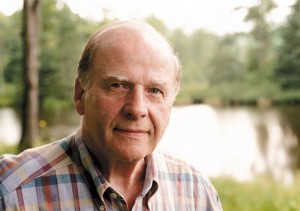
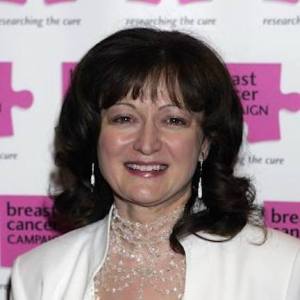
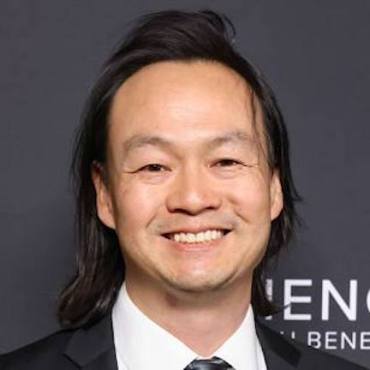

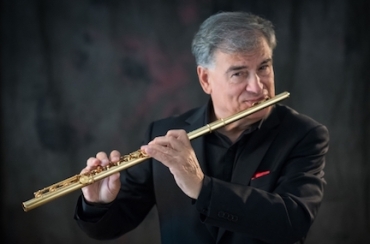








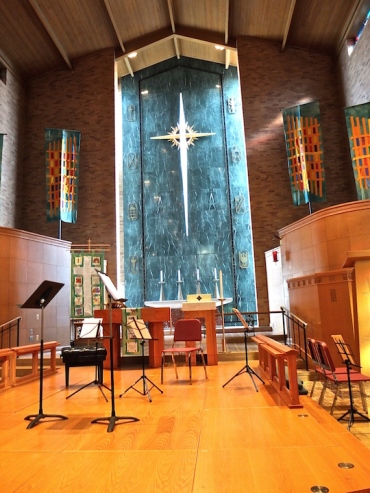


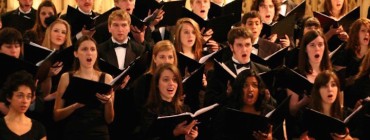


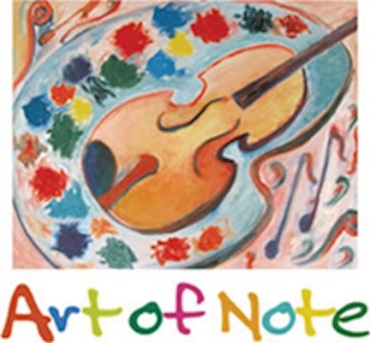


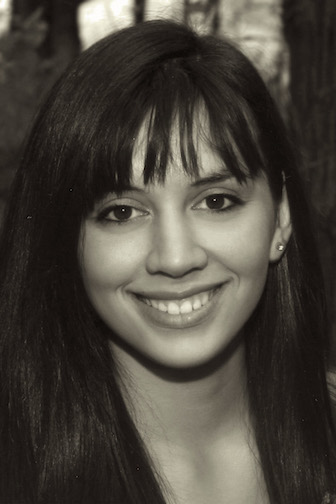
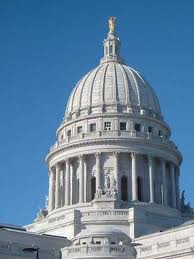
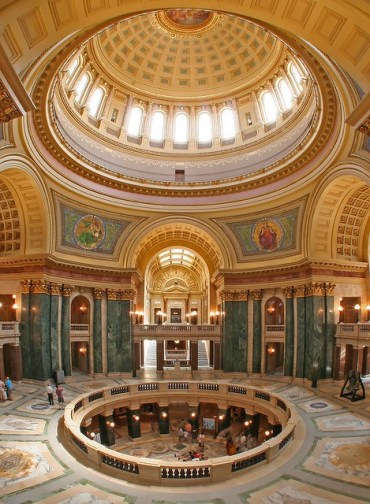
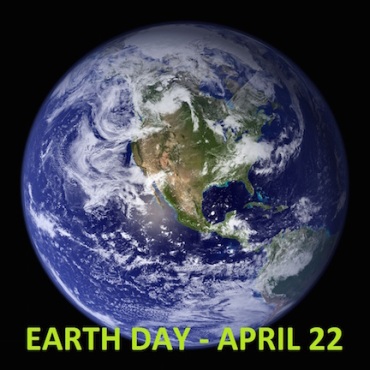
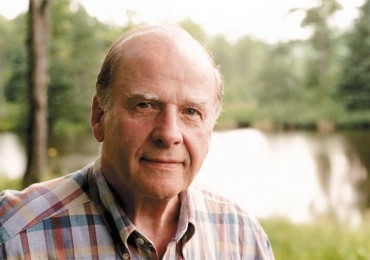
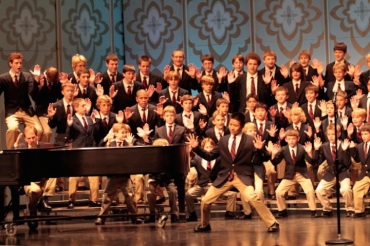
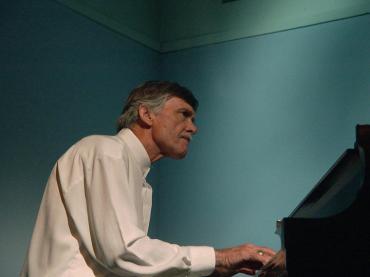
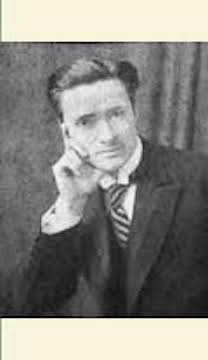









Classical music: Madison Opera announces its 2020-21 season and plans for Opera in the Park on July 25. Plus, today is the 50th anniversary of Earth Day. What music would you choose to mark the event?
3 Comments
PLEASE HELP THE EAR. IF YOU LIKE A CERTAIN BLOG POST, SPREAD THE WORD. FORWARD A LINK TO IT OR, SHARE IT or TAG IT (not just “Like” it) ON FACEBOOK. Performers can use the extra exposure to draw potential audience members to an event. And you might even attract new readers and subscribers to the blog.
ALERT: Today, April 22, is the 50th anniversary of Earth Day, which was founded by Gaylord Nelson, a former Wisconsin governor and senator. To celebrate it, in the YouTube video at the bottom is “The Earth Prelude” — a long work, both Neo-classical and minimalist, with beautiful photos, by the best-selling, award-winning Italian composer Ludovico Einaudi. It has more than 2.3 million views.
What music would you listen to to mark the event? Leave suggestions with YouTube links, if possible, in the Comment section.
By Jacob Stockinger
The Madison Opera has just announced its upcoming 2020-21 season.
As usual, there are three works. The fall and spring operas take place in Overture Hall and the winter production, a Broadway musical, will use the Capitol Theater.
Below are the titles with links to Wikipedia entries for more information about the works and their creators:
Here are the titles:
“Il Trovatore” (The Troubadour) – with the popular “Anvil Chorus” — by Giuseppe Verdi (below) in Overture Hall on Friday night, Nov. 6, at 8 p.m. and Sunday afternoon, Nov. 8, at 2:30 p.m. It will be sung in Italian with projected English translations.
https://en.wikipedia.org/wiki/Il_trovatore
“She Loves Me” with music by Jerry Bock and lyrics by Sheldon Harnick (below) – the same team that created “Fiddler on the Roof” — in the Capitol Theater on Friday night, Jan. 29, at 8 p.m. and Sunday afternoon, Jan. 31, at 2:30 p.m. It will be sung in English with projected text.
https://en.wikipedia.org/wiki/She_Loves_Me
“The Marriage of Figaro,” by Wolfgang Amadeus Mozart (below) in Overture Hall on Friday night, April 30, at 8 p.m. and Sunday afternoon, May 2, at 2:30 p.m. It will be sung in Italian with projected English translations.
https://en.wikipedia.org/wiki/The_Marriage_of_Figaro
You can see a short preview peek — with music but no word about casts, sets or production details — on Vimeo by using the following link: https://vimeo.com/398921274
For more forthcoming information about the season, go to: https://www.madisonopera.org
OPERA IN THE PARK
You may recall that this spring the Madison Opera had to cancel its production of “Orpheus in the Underworld” by Jacques Offenbach because of the COVID-19 pandemic.
What about this summer’s 19th annual Opera in the Park (below, in a photo by James Gill)?
It is still slated for Saturday, July 25, in Garner Park, on Madison’s far west side, with a rain date of Sunday, July 26.
But the opera company is being understandably cautious and says: “At this time, we are proceeding with Opera in the Park as scheduled.
“The safety and wellbeing of our community are our top priority, and we are closely following the guidelines and recommendations of public health officials. We are prepared to make necessary decisions in response to rapidly changing conditions.
“We appreciate your patience and understanding as we navigate these circumstances.”
For updates and more information about Opera in the Park, go to: https://www.madisonopera.org/2019-2020-season/oitp2020/
Share this:
Tags: #AnvilChorus, #BlogPost, #BlogPosting, #BroadwayMusical, #CapitolTheater, #ChoralMusic, #COVID-19, #EarthDay, #EnglishLanguage, #EnglishTranslation, #FacebookPost, #FacebookPosting, #FiddlerontheRoof, #Fridaynight, #GarnerPark, #GaylordNelson, #GiuseppeVerdi, #IlTrovatore, #italianComposer, #ItalianLanguage, #JacquesOffenbach, #JamesGill, #JerryBock, #LudovicoEinaudi, #MadisonOpera, #MadisonOperaChorus, #MadisonSymphonyOrchestra, #MinimalistMusic, #NewsUpdate, #OperaCompany, #OperaComposer, #OperaInThePark, #OperaMusic, #OrchestralMusic, #OrpheusintheUnderworld, #OvertureCenter, #OvertureHall, #PublicHealth, #PublicOfficials, #RainDate, #SheldonHarnick, #SheLovesMe, #Sundayafternoon, #TheEar, #TheMarriageofFigaro, #VocalMusic, #WestSide, #Wikipediaentry, #YouTubevideo, 2020, 2021, afternoon, anniversary, announce, annual, Anvil Chorus, April, Arts, audience, award-winning, beautiful, best-selling, blog, Broadway, cancel, Capitol Theater, cast, cautious, celebrate, change, choral music, circumstances, Classical music, click, comment, community, company, composer, Concert, conditions, conductor, coronavirus, create, creator, day, decision, Earth, Earth Day, Einaudi, Facebook, fall, Fiddler on the Roof, found, Friday, Friday night, Garner Park, Gaylord Nelson, Giuseppe Verdi, governor, guidelines, help, icon, Il Trovatore, informaiton, Italian, Italy, Jacob Stockinger, Jacques Offenbach, James Gill, January, Jerry Bock, July, like, link, listen, long, Ludovico Einaudi, lyrics, Madison, Madison Opera, Madison Opera Chorus, Madison Symphony Orchestra, Marriage, May, minimalist, Music, musical, navigate, necessary, neo-Classical, night, November, Offenbach, officials, opera, Opera in the Park, orchestral music, Orpheus in the Underworld, Overture Center, Overture Center for the Arts, Overture Hall, pandemic, patience, peek, photo, photos, popular, post, posting, postpone, Prelude, prepared, preview, priority, proceed, production, project, projected, Public health, rain date, rapid, recommendations, response, safety, same, schedule, Season, section, senator, set, share, She Loves Me, Sheldon Harnick, short, sing, singer, Sound, speaker, Spring, subtitles, suggestion, summer, Sunday, Sunday afternoon, sung, supertitles, tag, team, text, The Ear, The Marriage of Figaro, titles, today, translation, troubadour, understandably, understanding, update, Verdi, view, Vimeo, vocal music, well-being, wellbeing, west side, Wikipedia, winter, Wisconsin, work, works, YouTube